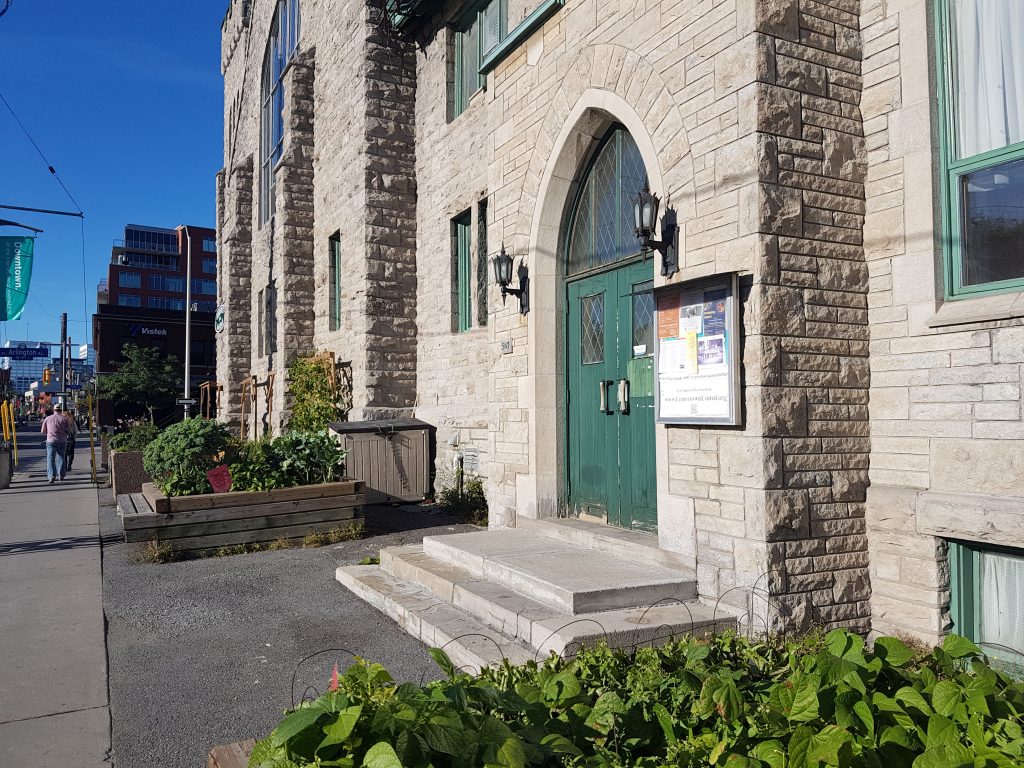Walk-a-thon to raise money for emergency food centre
By Gabbi Van Looyen
The Centretown Emergency Food Centre is holding its second annual fundraising walk-a-thon on Oct. 15 to meet the rising costs of helping those in need.
Despite receiving $25,000 in funding from its parent organization, the Centretown Churches Social Action Committee, as well as additional funds from the City of Ottawa, CEFC had to spend an additional $100,000 over budget in 2016.
“That was strictly what we spent on food,” said Kerry Kaiser, coordinator of the food centre operated out of Centretown United Church on Bank Street. “We struggle all year-round for donations except for in December.”
Elizabeth Kent, Walk for the Centre organizer and a CCSAC board member from St. Matthew’s Anglican Church, said the walk-a-thon should help ease these financial burdens.
“One of the things that have impacted me the most is how much money we had to raise over and above the money we had been given,” she said. “It’s this ongoing stress to keep the books balanced.”
The financial struggles of food banks are not lost on Mai Lee, co-ordinator of the Dalhousie Food Cupboard, which operates out of The Bronson Centre. She said that as the need in Centretown grows, so do the operating costs of food banks.
“We are always struggling with funding,” she said. “We try to do our fundraising, but it doesn’t seem like enough.”
Although Kaiser said she acknowledged that it’s part of the group’s job to fundraise, she said the city should also allocate more funds towards food banks.
“I do think that in the grand scheme of things, if the city had to give out food vouchers instead of referring people to food banks, it would cost them a lot more money,” she said.
According to the Ottawa Food Bank, 41,540 people every month used food banks in the city in 2016. Last year, the CEFC served 10,126 people — 336 more than in 2015.
Kaiser said most of the centre’s clients are low-income families.
“Ten years ago, we didn’t see as much working poor as we see now and that has to do directly with housing and the cost of living,” she said.
Lee said that a lack of affordable housing often leaves her clients with a devastating decision— paying for food or their rent.
In response to the affordable housing shortage, the City of Ottawa launched its 10 Year Housing and Homelessness Plan in 2014. Like other Housing First models, the city’s main priority is to provide people with a safe, stable environment so they can then address their other challenges, such as food insecurity.
“The founders (of the food centre) said we only need to be here for 10 years, then the problem would be solved. It’s 31 years now, and we still have to help out,” she said. The city’s housing plan, she added, “doesn’t seem like it’s helping out all that much yet.”
Kaiser said the walk-a-thon not only serves as a wake-up call for the city, but for the broader community, as well.
“I think, too, that people need to remember that the neighbour living beside you, might be sending their children to school without lunch,” she said. “It’s about sharing and sharing gifts that you have because everyone is one paycheque away from having to use our services.”
The walk-a-thon will offer two separate routes for participants: a shorter walk towards Parliament Hill and a 3.5-km scenic route along the Rideau Canal. The goal is to raise $14,000.
Kaiser said that every donation, no matter how small, has the power to rebuild lives.
“Often, we represent a bad time in a client’s life,” she said. “When I watch them leave, it’s almost a totally different person. There’s somebody that actually has hope.”

